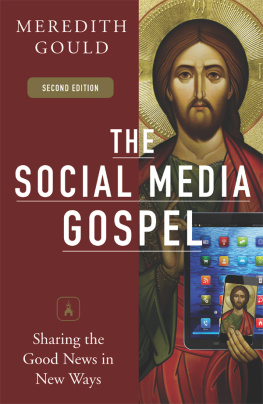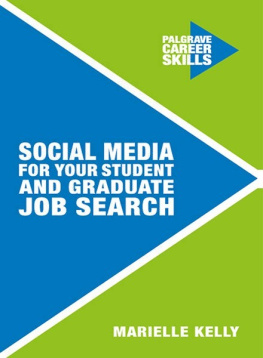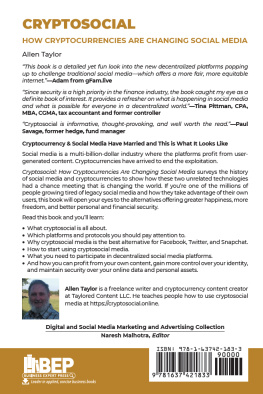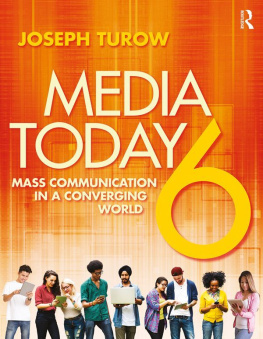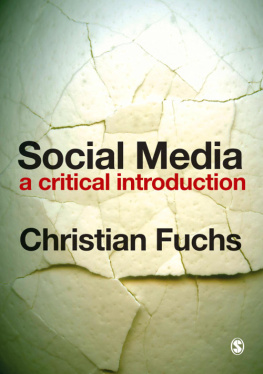A Filtered Life moves beyond simple denunciations of online sociality, exploring the promise and perils of our emerging digital age. This in-depth ethnographic analysis reveals how young adults craft selfhood and community through social media, with lessons for understanding an era in which digital technologies are part of everyday life from the outset.
Tom Boellstorff, Author of Coming of Age in Second Life and Ethnography and Virtual Worlds
Taylor and Nichter show how complicated it can be to navigate the demands of authenticity in a competitive climate where everyone is editing themselves into a digital perfection. Read this book to learn the emotional costs of seeing and being seen as a 20-something under our contemporary online regime of self-branding.
Ilana Gershon, Author of The Breakup.20
This lively study provides both compelling detail on a human levelthe stories of young people who find themselves drawn into social mediaand reflections on the broader implications for American culture. This book will interest all those who wonder about the impact of this enormously significant but little- understood aspect of contemporary life.
Peter Stromberg, Author of Caught in Play
This engaging, timely, ground-breaking book provides important information about the smartphone-centered lives of todays emerging adults. It is a welcome and valuable contribution toward understanding the meanings that smartphones hold for emerging adults and will help themand the rest of ususe them more wisely.
Jeffrey Jensen Arnett, Author of Emerging Adulthood: The Winding Road from the Late Teens Through the Twenties
A Filtered Life
A Filtered Life is the first comprehensive ethnographic account to explore how college students create and manage multiple identities on social media.
Drawing on interviews and digital ethnographic data gleaned from popular social media platforms, the authors document and make visible routinized practices that are typically hidden and operating behind the scenes. They introduce the concept of digital multiples, wherein students strategically present themselves differently across social media platforms. This requires both the copious production of content and the calculated development of an instantly recognizable aesthetic or brand. Taylor and Nichter examine key contradictions that emerged from student narratives, including presenting a self that is both authentic and highly edited, appearing upbeat even during emotionally difficult times, and exuding body positivity even when frustrated with how you look. Students struggled with this series of impossibilities; yet, they felt compelled to maintain a vibrant online presence.
With its close-up portrayal of the social and embodied experiences of college students, A Filtered Life is ideal for students and scholars interested in youth studies, digital ethnography, communication, and new forms of media.
Nicole Taylor is Associate Professor of anthropology at Texas State University and the author of Schooled on Fat: What Teens Tell Us about Gender, Body Image, and Obesity.
Mimi Nichter is Professor Emerita of anthropology at the University of Arizona. She is the author of Lighting Up: The Rise of Social Smoking on College Campuses and Fat Talk: What Girls and their Parents Say about Dieting.
Cover image: iStock / franckreporter
First published 2022
by Routledge
605 Third Avenue, New York, NY 10158
and by Routledge
2 Park Square, Milton Park, Abingdon, Oxon, OX14 4RN
Routledge is an imprint of the Taylor & Francis Group, an informa business
2022 Taylor & Francis
The right of Nicole Taylor and Mimi Nichter to be identified as authors of this work has been asserted in accordance with sections 77 and 78 of the Copyright, Designs and Patents Act 1988.
All rights reserved. No part of this book may be reprinted or reproduced or utilised in any form or by any electronic, mechanical, or other means, now known or hereafter invented, including photocopying and recording, or in any information storage or retrieval system, without permission in writing from the publishers.
Trademark notice: Product or corporate names may be trademarks or registered trademarks, and are used only for identification and explanation without intent to infringe.
Library of Congress Cataloging-in-Publication Data
A catalog record for this title has been requested
ISBN: 9781032021362 (hbk)
ISBN: 9781032021348 (pbk)
ISBN: 9781003182047 (ebk)
DOI: 10.4324/9781003182047
Typeset in Bembo
by codeMantra
For our families
For all your love and support
Contents
Acknowledgments
Introduction
1 Media Landscape
2 The Editing Imperative
3 The Body Imperative
4 The Positivity Imperative
5 Covid-19: Emergent Imperatives
Conclusion
Index
Acknowledgments
We have both said many times over the course of this collaboration that we could not have written this book alone. Our history of working together was lengthy; Nicole had completed her dissertation with Mimi as her advisor, and her research topic aligned with much of Mimis early work on body image. Over the years, we had published several articles together on college students, body image, and smoking, so we had confidence that we could conduct research and write together in a relatively seamless manner. When we first discussed starting a new project on social media use among college students, it seemed like a natural extension of our earlier work. And then, when we decided that the data we collected should be written up as a book, neither of us hesitated to sign on for the task. It has been an enjoyable collaboration as we brought different strengths to the project and learned from one another along the way. Nicoles taskmaster approach to meeting deadlines moved the project along in ways that were appreciated by Mimi, who values rumination, slow thought, and diving deep.
There are many people who assisted us in bringing this book to completion. First, we are grateful to all our participants who openly shared their experiences with social media and allowed us access to their accounts so we could more fully understand their performances on various platforms. Their thoughtful narratives, featured throughout this book, enriched our project and inspired us. We deeply appreciate their openness and honesty in walking us through their practices of editing and curating their online selves. Looking back, we acknowledge that at the onset of the project we understood relatively little about what online life was all about for 20-somethings.
There are many others to whom we are grateful. Research assistants Alejandro Allen and Angela Walton provided invaluable insights as interviewers and in discussions about emergent findings. We are also thankful for feedback we received on earlier chapters of this book from undergraduate students who read them as part of an anthropology seminar. Their positive feedback served as confirmation that our understanding of their online lives was on target.
On a personal level, there are many people without whose support this book would not have come to fruition. Nicole offers thanks to David Schachter for sharing insights from his experience working with youth and for picking up the slack at home so she could write. She is grateful to their son, Oliver, for his patience as she spent many hours locked in the study with noise canceling headphones while they were home together during the pandemic year. Mimi offers thanks to Mark Nichter who was always willing to discuss unfolding themes in the research, provide theoretical counsel, and follow ideas into their broader implications. She is always grateful to her two sons for enriching her life: Brandon, for ongoing discussions on issues of mental health on college campuses, and Simeon, for his loving support, enthusiasm, and ongoing interest in this research.


